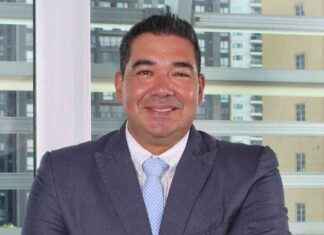MADRID, 30 Oct. (EUROPA PRESS) –
Jair Bolsonaro “painted a climate” for this second round of the Brazilian elections that was very different from what he intended. The optimism that spread after the polls underestimated him in the first round and that even as this Sunday’s final date approached some predicted a technical draw, has been deflated with the latest polls, which put him up to seven points under his antagonist, Luiz Inácio Lula da Silva.
Aware of this, Bolsonaro’s team has even asked for this Sunday’s meeting to be postponed, alleging, without evidence, that they would have been harmed in the distribution of electoral propaganda in the radio stations of the Northeast, an impregnable bastion of Lula before whom the still president cannot even compensate with the results of other regions.
The complaint was dismissed by the Superior Electoral Court (TSE) for lacking the most “minimal indication of evidence.” Dissatisfied with the ruling, Bolsonaro again launched coup suggestions and urgently met with high-ranking military commanders, announcing that he would go “to the last consequences” on this matter.
The fear that he will not recognize the results of these elections has been hovering for several months, coinciding with the release of former President Lula from prison and with it the recovery of his political rights.
By questioning the electoral system, Bolsonaro has heated up the spirits among the most extreme part of his electorate, so now the fear is that possible episodes of electoral violence will occur, more so after the case of his former ally in the Congress that he now denies, Roberto Jefferson, who was shot at by the Police when he was going to be arrested for violating the conditions of his house arrest.
The euphoria that had established itself in Bolsonaro’s headquarters in recent weeks, coinciding with an improvement in the polls, came to nothing a few days ago when the latest Datafolha poll showed the wear and tear it would have suffered.
Bolsonaro became his worst enemy again when he said that a few years ago he had the opportunity (“he painted a climate”) to enter a house full of Venezuelan minors “14, 15 years old, all very pretty”, of which he insinuated that they would be practicing prostitution. Some statements to stir up the ghost of the Venezuela of Chavismo to attack Lula.
Bolsonaro aspires this Sunday to remain at the head of Brazil for another four years after a first legislature marked by his denial management of the pandemic, his continuous attacks on democratic institutions, the fuel he has given to false news and a return with which he does not counted, that of Lula da Silva.
Bolsonaro, 67, has promised that he will continue with the same policies of the last four years, especially those related to the privatization of strategic state companies, such as the energy company Petrobras, with which he hopes to make one of his campaign promises possible. have the cheapest fuel in the world.
Representative of the most conservative sectors of Brazil, he has never hidden his admiration for the Brazilian military dictatorship (1964-1985), he has gone through a dozen political forces until at the end of last year he joined the ranks of the Liberal Party (PL) in order to launch your candidacy.
Throughout these four years, Bolsonaro has made the fight against corruption his main political banner and has presented himself in the campaign as the author of the fact that the country has managed to reduce poverty thanks to social aid programs that guarantee financial support to poor families, although these barely lasted a few months in the middle of the pandemic.
His management of the health crisis has been widely criticized both outside and inside the country, so much so that it caused a parliamentary investigation that concluded that he had committed up to nine crimes. Not only did he minimize its scope, he even qualified the disease as a “little flu”, but also recommended the use of ineffective remedies ahead of the vaccine, whose purchase he delayed.
The Brazilian president faces his re-election aspirations with at least six pending cases in the Supreme Court and the Superior Electoral Court (TSE), bodies against which he has intensified his attacks in recent months, coinciding with the recovery of the former president’s political rights Lula.
His victory in the 2018 elections took place in a context full of judicial arbitrariness, including the arrest of Lula himself, who, like now, started with an advantage in the preferences of Brazilians. The Supreme Court concluded in 2021 that the process against the former president, instructed by Sergio Moro, who later served as Bolsonaro’s Minister of Justice, was partial and unfair.
The groups that most reject Bolsonaro are the unemployed, blacks, students, young people and women, a sector, the latter, that his campaign team has tried to seduce without success through the figure of the first lady, Michelle Bolsonaro, the profile of a woman — a conservative evangelical Christian who rejects the feminist agenda — in which she can still scratch some votes.
The indigenous issue is another issue that has been criticized, although it is true that these communities have been denouncing the abandonment of previous governments. However, land demarcation policies were forgotten under his mandate, in whose first two years there was a sharp increase in invasions, murders, as well as the illegal exploitation of resources.






